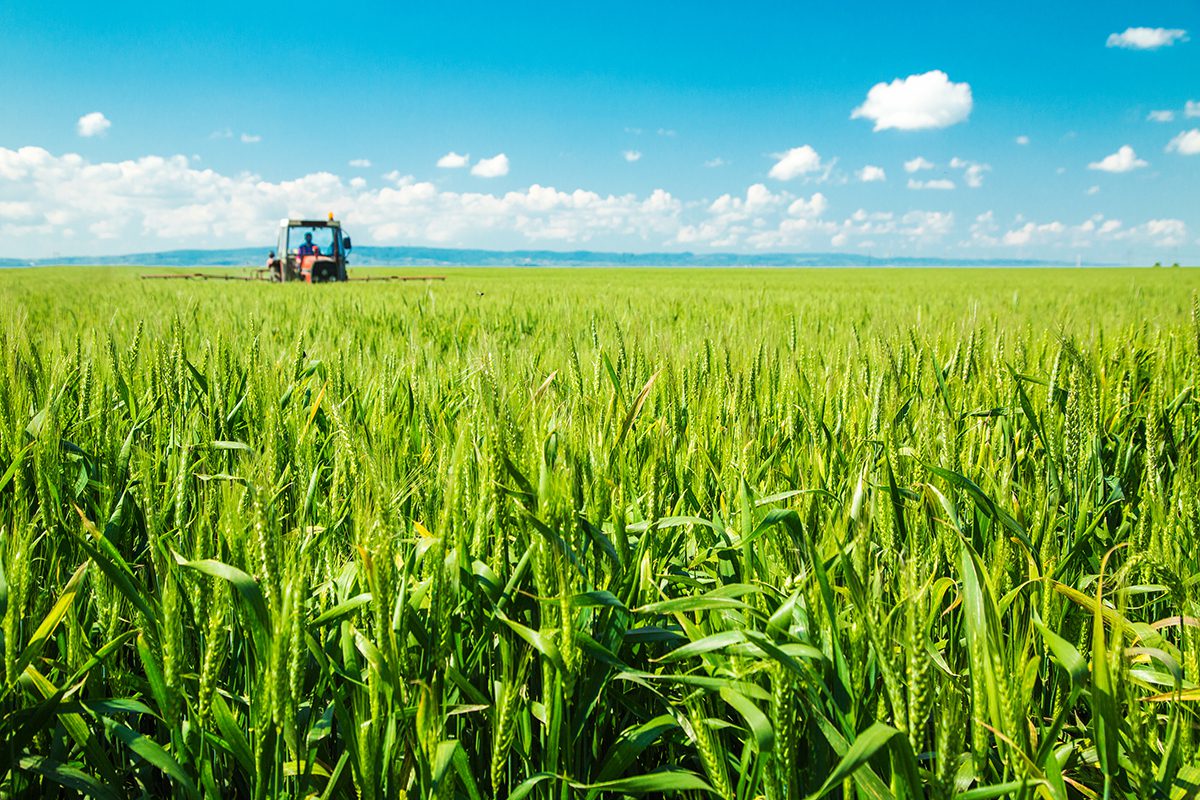
Land is under growing pressure from human activity and climate change is adding to these pressures, according to a report released by the IPCC on 8 August. The effects include water scarcity, desertification, soil erosion, declining crop yields and wildfire damage, with the prospect that these will only worsen unless urgent action is taken.
Improvements to land use are one pathway to tackling these problems. And the report also shows that better land management can contribute to tackling climate change, but should not be the only solution. Reducing greenhouse gas emissions from all sectors is essential if global warming is to be kept to well below 2ºC, if not 1.5ºC, said the authors.
Working the land
When land is degraded, it becomes less productive, restricting what can be grown and reducing the soil’s ability to absorb carbon. This exacerbates climate change, while climate change in turn exacerbates land degradation in many different ways.
“The choices we make about sustainable land management can help reduce and in some cases reverse these adverse impacts,” said Kiyoto Tanabe, Co-Chair of the Task Force on National Greenhouse Gas Inventories, and a contributor to the report.
“In a future with more intensive rainfall, the risk of soil erosion on croplands increases, and sustainable land management is a way to protect communities from the detrimental impacts of this soil erosion and landslides.”
“However there are limits to what can be done, so in other cases degradation might be irreversible,” he said.
Commentators from the worlds of science and policy noted the stark message, and the urgent need for change in how land is managed.
Response options identified in the report include improvements to sustainable food production, forest management, soil organic carbon management, ecosystem conservation, and reductions in food waste. The report assesses their potential impact, how quickly (or not) they can be up and running, and whether or not they compete for land. Some of the measures will reduce competition for land, thereby helping combat things like land degradation, and making more land available to help sequester carbon, for example.
The title of the report itself – Climate Change and Land, an IPCC special report on climate change, desertification, land degradation, sustainable land management, food security, and greenhouse gas fluxes in terrestrial ecosystems – is a nod to the complex dependencies that exist between different factors related to climate, land use and human behaviour.
Land and climate
“Agriculture, forestry and other types of land use account for 23% of human greenhouse gas emissions,” said Jim Skea, Co-Chair of IPCC Working Group III, another contributor. “At the same time natural land processes absorb carbon dioxide equivalent to almost a third of carbon dioxide emissions from fossil fuels and industry,” he said. The report looks at how decisions about land use management can help address climate change.
Responding to the report, Dr Joeri Rogelj, Lecturer in Climate Change, Grantham Institute, Imperial College London, said there were “some great opportunities” when it came to using the land for climate action, but there was also the possibility of “potential disastrous outcomes if things are not done right.” The road ahead seemed to be clear for action in terms of better managing pastures and forests to improve their resilience, or increasing the amount of carbon retained in soils, or increasing the productivity of the food system (and minimising waste). Other strategies contain potential pitfalls, and she said that “zealously relying on excessive amounts of bioenergy, carbon-dioxide removal or nature-based solutions to get to net zero is a risky and unwise strategy.”
“When badly implemented, these measures can result in further land degradation or counteract sustainable development. Moreover, the climate benefits of measures like rewilding or other nature-based solutions cannot be taken for granted. The carbon stored in natural systems can easily be returned to the atmosphere with a sequence of extreme weather events like the heatwaves we have been experiencing recently.”
Fixing the food system
Prof. John Crawford, Head of the Integrated Solutions Lab, Rothamsted Research, said:
“The single most important message from this report is that the food system has been broken by a world view that ignores the interconnections in that system, and that has produced unintended consequences that will have dire consequences for our future wellbeing if nothing is done.”
He continued: “Reconnecting the food system by acknowledging these interconnections, will allow new levels of optimisation at the scale of the whole system (rather than its parts). It will allow us to identify fewer and more synergistic interventions that reduce a far larger number of risks.”
Professor of Sustainable Development at the University of Surrey and Director of the Centre for the Understanding of Sustainable Prosperity, Tim Jackson said the report “ought to be a profound wake-up call for somnambulant politicians”, and highlighted the “real risk of serious and worsening food insecurity in the near to medium term”.
“As our work on the RSA’s Food, Farming and Countryside Commission recently revealed, society’s relationship with the land has been profoundly broken in the last 70 years. Driven by poor policy and perverse incentives, the food and farming system has become one of the main drivers of human and ecosystem crisis.”
However, he added that “none of this is inevitable.” UK-specific recommendations made by his own group have included proposals for a ten-year transition plan for sustainable farming, a comprehensive land-use strategy, and a National Agroecology Development Bank to facilitate investment in the land.
John Crawford of Rothamsted Research was keen to point out that “there is new hope because agriculture is on the brink of a technology and data-enabled revolution that will give us access to almost real time information about agriculture and its environmental impact. This will enable more sophisticated mathematical analysis such as has been used in physics for nearly 300 years to solve complex problems in astronomy, engineering and to a lesser extent in medicine.”
Improving crop resilience
Food waste was another area which the report identified as an urgent priority for improvement. Responding to its findings, Professor Colin Campbell, Chief Executive, James Hutton Institute, said: “Some estimates put food waste due to pest, disease and deterioration at 30% and clearly, this has a big impact. So, producing crop varieties with resistance to disease and pests and also crops with longer shelf-life will help a great deal. Also, new technology such as indoor vertical farming eliminates pests and disease by growing crops in a high hygiene environment without the need for pesticides. Such systems are also climate-proof and reduce food miles and with more uniform and consistent food less produce is rejected so indoor systems will also dramatically reduce food waste.”







